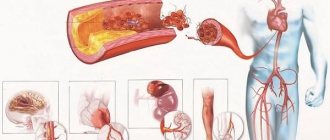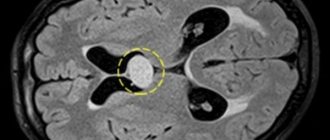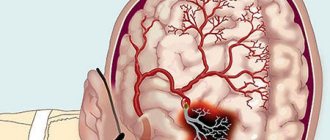Snoring occurs due to attachment to past patterns
The psychosomatics of snoring in men and women is not much different. One of the basic psychological reasons is the reluctance to give up outdated attitudes, stereotypes and behavior patterns. A person is even ready to conflict with other people in order to preserve and defend old patterns of behavior.
It is important! The patient does not want to move forward, he wants to live as before. Moreover, he imposes his old model of life on everyone around him. This is why rhonchopathy is more common among older people.
Ronchopathy at a subtle level
Medicine explains rhonchopathy by narrowing of the upper respiratory tract. It disrupts air flow, resulting in wave vibrations. That's what we hear.
What affects the appearance of the disease:
- decreased muscle tone of the nasopharynx;
- respiratory diseases;
- specific structure of the jaw.
It is believed that only men snore. But in fact, rhonchopathy can occur in any person, regardless of gender and age. It's all about airway patency, not socio-demographic characteristics.
Female rhonchopathy
In women, snoring is associated with unexpressed thoughts, suppressed feelings, negative attitudes, and depression. They are tormented by grievances, irritation, and unpleasant memories. A special role is played by misunderstanding and a feeling of alienation in relationships with loved ones.
Ronchopathy in a woman is a protest, an expression of reluctance to change her habits and opinions. This is especially noticeable among mature women. Their children grow up, but mothers still try to impose their opinions. Confrontation between adult children and parents results in stress and snoring in women.
It is important! Snoring in women during pregnancy is associated with hormonal changes, weight gain, and swelling. Ronchopathy often occurs in women during pregnancy and menopause.
Night breathing problems in children
Children's snoring has the same reason - bitterness and despair. But what exactly causes such feelings, even the child himself does not always know. It can be assumed that the reason lies in the behavior of the parents. Most likely, the child lacks love, attention and support. Another reason is guilt. The child takes personal account of conflicts between parents and conflicts with peers.
How to deal with stress as an adult
The first and most significant recommendation is not to keep all your emotions to yourself. Spill them out. How? This will be discussed below.
The fact is that an elevated temperature in an adult due to stress is not the worst thing that can happen. If he is constantly in a suspended state and keeps all his aggression within himself, then he may subsequently develop serious illnesses. For example, gastritis or ulcers, pancreatitis, VSD, heart pathologies, disturbances in the functioning of the digestive and endocrine systems.
Important! Emotions must be expressed outwardly. It is because men keep them to themselves that their average life expectancy is lower than that of women. The cause of death is often heart attacks and strokes.
How to cope with emotions without harming your own or others' health
Take up sublimation. In psychology, this term refers to the replacement of unwanted or impossible actions with other good or neutral actions.
Examples of how you can get rid of feelings of anger:
- hitting a pillow by a child or a punching bag by an adult;
- playing sports;
- going out into nature. For a better effect, an adult can shout there at the top of his voice so that all negative emotions leave the body;
- tearing paper into small pieces;
- drawing;
- activities related to fine motor skills. For example, women can start embroidering or beading.
Attention! If you have a person whom you completely trust, then share your experiences with him. At the same time, do not forget to be interested in his life.
Remember! Medicine will not help get rid of a disease if it is caused by psychological problems.
Psychosomatics of snoring
The snorer himself rarely suffers from his illness. But the people around the snorer suffer from sleep disturbances, insomnia, headaches, migraines, and constant fatigue. And even if a person lives alone, it is important to get rid of snoring. Because without correction, psychological problems can provoke the development of new diseases.
Damage to the nasal septum
A deviated nasal septum creates an obstruction to air movement. Wheezing is the result of sound vibrations.
Overweight and obesity
Fat is deposited everywhere, including on the outside of the neck and inside the throat. The more excess weight, the greater the load on the organs. Fat narrows the airway space.
In severe stages of obesity, not only snoring is observed, but also sleep apnea syndrome (stopping breathing). This is life-threatening and requires the use of a special device that maintains oxygen exchange and normal pressure levels in the nasal cavity and mouth.
Smoking
Smoking has a negative impact in several ways:
- dries out the mucous membrane, which causes nasal congestion;
- irritates the respiratory system, which leads to inflammation and narrowing of air space;
- stimulates the production of mucus (it fills the passages and disrupts air circulation).
In addition, smoking causes vasospasm, which impairs blood flow and weakens vascular and muscle tone.
Cervical osteochondrosis
Osteochondrosis disrupts blood circulation and oxygen exchange, salt deposits turn into growths, pinching muscles and blood vessels. Osteochondrosis is destructive changes in cartilage tissue. Without treatment, the disease will spread further and cause greater dysfunction of the musculoskeletal system.
Sleep positions
The worst position is lying on your back. The muscles of the nasopharynx relax too much, which causes snoring. In addition, it is important to pay attention to the position of the head. It should be higher than the body. To correct your sleeping position, you can purchase a special orthopedic mattress and pillow.
Diagnostics
Pulse oximetry is a screening method for diagnosing sleep disorders.
Prolonged pauses in breathing can usually be noticed by the patient's family. It looks like this. The patient snores, then suddenly becomes quiet. After a pause, she makes a "snoring" sound, trying to inhale more air after the pause, and then continues to snore, sometimes even louder.
But short episodes of apnea may not have such a clear picture. Therefore, not all patients realize the reasons for their deteriorating health.
If sleep apnea is suspected, somnologists suggest performing computer pulse oximetry. And to clarify the diagnosis and assess the severity of OSA, polysomnography is used.
Mechanism of occurrence
Snoring occurs due to decreased tone of the muscles of the larynx and pharynx. What we take for snoring is vibrations of the walls of the pharynx, soft palate and root of the tongue. Snoring is the result of soft tissues closing during inspiration and blocking the airways. This disorder can occur for a number of anatomical, physiological and psychological reasons.
It is important! Changes that cause snoring can provoke the development of another problem - apnea. Apnea is interruption of breathing during sleep. It occurs due to the collapse of the walls of the nasopharynx.
Effect of the nasal septum
A reason that is relevant for all age groups. The nasal septum is a plate that divides the nasal cavity into two parts. A deviated septum impairs air circulation and causes rhinitis. It further worsens the patient's condition.
Nasal polyps and nasal congestion
Polyps are growths of the mucous tissue of the nasal cavity. The more growths, secretions, etc. in the nose, the less space is left for air movement. Remember how a person sniffles with a runny nose. At night, due to the special situation, the condition worsens even more.
It is important! Polyps make themselves felt only in the later stages. There is difficulty breathing, nasal congestion, and frequent upper respiratory tract infections.
Tonsils and adenoids
Inflammation in the throat also narrows the space for air movement. Enlargement of the tonsils is often observed, and it can be both anatomical and infectious. In both cases, this causes snoring. Changes in the tonsils are noticeable during wakefulness - the person breathes heavily and frequently, and opens his mouth slightly.
Adenoids occur against the background of infections and allergies. Lymphoid tissue grows and blocks the pharynx. You can suspect adenoids during wakefulness by noisy and difficult breathing, or hearing problems.
Congenital features
Congenital features include an elongated uvula or a large tongue. This anatomy blocks the lumen of the pharynx, which causes snoring. To combat congenital features, special mouthguards and palatal implants are used. The device is installed in an outpatient hospital setting.
It is important to know
At the physiological level, the elementary diagram of psychosomatic diseases looks like this. The nervous system consists of peripheral and central parts. The periphery and the center are in close relationship with each other, where the center gives commands and the periphery carries them out. The central nervous system (cerebral cortex) is the material carrier of the psyche.
The peripheral division is specific nerve fibers that spread throughout the body and innervate the organs attached to them. Mental shocks and other psychological factors, due to excessive influence, can disrupt the work of the central department, therefore, “perverted” impulses arrive at the periphery, which disrupts the function of internal organs. An increase in temperature is also a consequence of malfunctions of the central nervous system.
Treatment methods
A common cause of snoring is negative attitudes and feelings of despair. To cure, psychologists recommend doing the following:
- let go of the past, learn to enjoy life in the present;
- accept yourself, find your place in this world;
- learn to value yourself and express your opinions, your feelings;
- learn to listen to other people, seek compromises in difficult situations;
- develop positive thinking, look for sources of positive emotions.
It is important! The true cause of despair may be hidden deep in the subconscious. For faster and more effective treatment, we recommend contacting a psychoanalyst.
In addition to psychotherapy, follow these tips:
- sleep on your side;
- treat inflammation of the nose and throat in a timely manner;
- use traditional medicine to prevent and treat diseases (drops, sprays, inhalations, decoctions).
If swelling of the mucous membrane is caused by allergies, then antihistamines are needed. And if the inflammation is caused by an infection, then antibiotics and antiseptics are needed. It is better to consult a therapist for medication.
Snoring Louise Hay
According to Louise Hay's theory, snoring indicates a person's reluctance to part with outdated stereotypes. Affirmation for healing: “I forget everything in my head that upsets me. I move from the past to the new, fresh, vital.”
Snoring Vladimir Zhikarentsev
According to V. Zhikarentsev, snoring occurs due to fixation on old patterns and attitudes. Healing Affirmation: “I release everything in my mind that is not love and joy. I am moving away from the past into a new, fresh and full of life present.”
Snoring Liz Burbo
With the help of snoring, a person is relieved of the stress accumulated during the day. This affects timid people and those who are forced to restrain themselves during the day. And behind this there may be a fear of being rejected.
For healing, it is important to understand that until you accept yourself, snoring will push other people away from you. People around us treat us the way we treat ourselves. Learn to express your opinion. You are worthy of attention. Learn to listen to others and respect yourself, then other people will begin to listen to you and recognize your opinion.
It is important! Traditional and folk medicine, surgical therapy and psychotherapy are used to treat snoring. If the cause is physiological, then medical treatment is necessary. For example, a deviated septum requires reconstructive surgery. And inflammation requires a course of treatment with a spray. Without treatment, snoring will further irritate your organs and further weaken your muscles.
Why does the temperature rise due to nervousness?
According to Liz Burbo (she compiled a table of all psychosomatic diseases), fever is caused by internal changes in the body at the physiological level. The psychologist claims that an increase in temperature indicates anger and guilt accumulated inside. For example, a student broke the rules and received a bad grade. He feels guilty about his actions. The next day his temperature rises for no reason. Anger, according to Liz Burbo, is a symbolic “boil,” which is reflected in the heat.
At the mental level, the psychologist believes that fever appears on the basis of internal conflict. It is a struggle between certain emotions and thoughts. Thus, Burbo advises to find in yourself a discrepancy between some thoughts and emotions in relation to some phenomenon, object or person.
For example, a patient on a rational level may consider his acquaintance to be a “pleasant person.” However, when this acquaintance appears, the patient feels disgust. This difference between the ratio gives rise to temperature.
Sinelnikov believes that fever is a sign of “inflammation of thought.” And in the body, it is inflammatory processes that generate pyrogens - protein substances that stimulate an increase in temperature. The healer states that inflamed thoughts arise from accumulated anger and anger.
Main causes of colds
A cold does not come from being cold. To get sick, you need to inhale or ingest the virus. But whether the virus manages to survive and develop depends on the strength of the immune system of a particular person. This is where we turn to the psychological causes of colds.
- overwork;
- dissatisfaction with oneself and life;
- dissatisfaction with work, place of study;
- exhaustion and apathy.
Imagine this situation: you really don’t want to go to work or school, you dream of staying at home and lying in bed. However, you cannot do this due to responsibility and diligence. This is where the idea comes to the tired psyche: you need to get sick, then you can officially stay at home. True, not all people go on sick leave. Some, especially responsible ones, swallow a handful of pills and go back to unpleasant work. This only aggravates the physical and mental condition.











